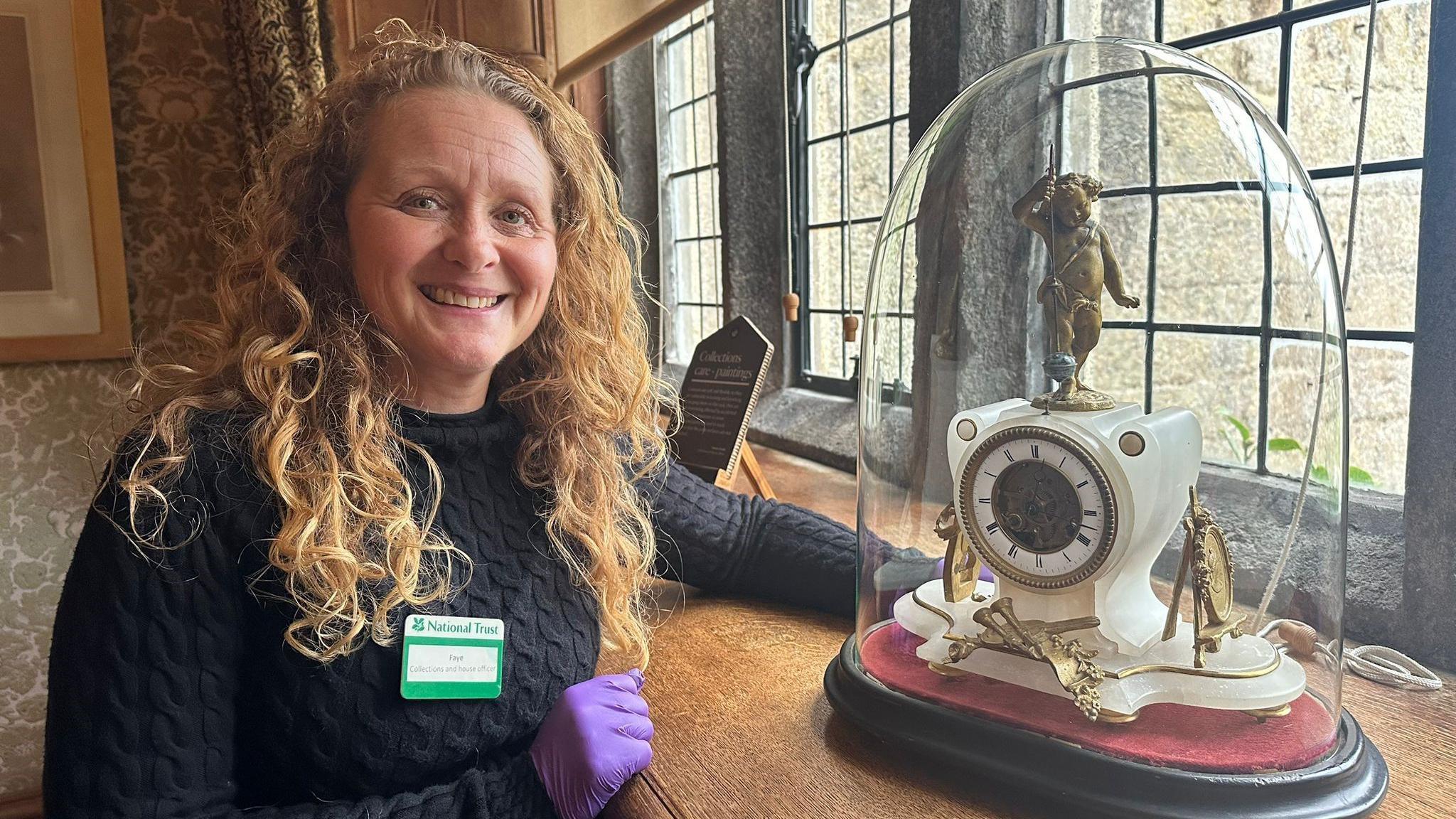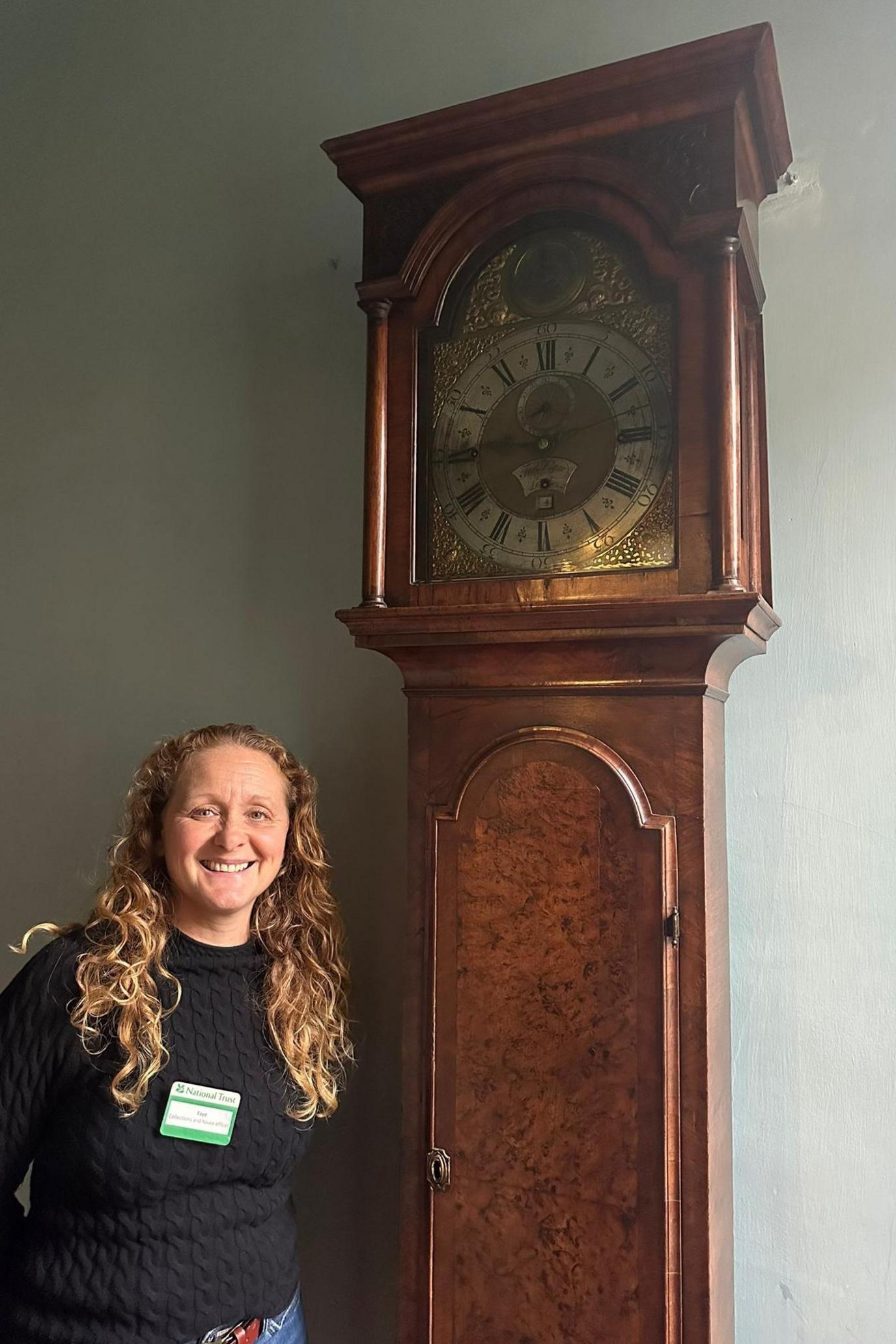The clocks that take hours to wind back

Faye Rason's favourite clock in the Lanhydrock collection is the French eight-day striking clock - it is one of 20 she has to wind back when British Summer Time ends
- Published
When British Summer Time (BST) ends each year, the collections officer at a Victorian country house in Cornwall prepares herself for a busy day at work.
At Lanhydrock, near Bodmin, which is run by the National Trust, the end of BST means Faye Rason has to wind 20 clocks back an hour - a process that can take two-and-a-half hours.
Usually it takes her an hour-and-a-half each week to manually wind the clock collection, but turning them back takes longer, she said.
One particularly challenging timepiece is a walnut long case clock made in 1740 because it chimes eight bells every 15 minutes - making putting it back a noisy affair.

A walnut long case clock made in 1740 chimes eight bells every 15 minutes
Despite the clock's age, Ms Rason said it kept better time than any of the others.
"It has three pendulums inside which are really heavy and because I'm quite short I have to go on tiptoes to wind each one," she said.
"[But] its chime is beautiful, it sounds lovely."
Her favourite clock at Lanhydrock is a French eight-day striking clock but it, too, has its challenges.
Ms Rason said: "It has a glass dome so when I'm winding that one it always makes me really nervous because I have to remove it... the glass is so fragile.
"It sort of frays your nerves."
Every clock at the site has its own record sheet where each winding is noted, along with how many minutes slow or fast it is operating.
This record helps the clock conservator to diagnose problems when they service the timepieces.
Follow BBC Cornwall on X, external, Facebook, external and Instagram, external. Send your story ideas to spotlight@bbc.co.uk, external.
- Published8 September 2024

- Published17 October 2023
